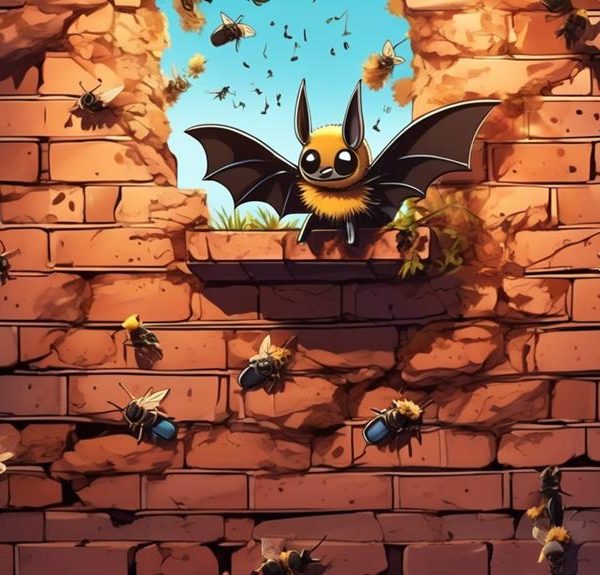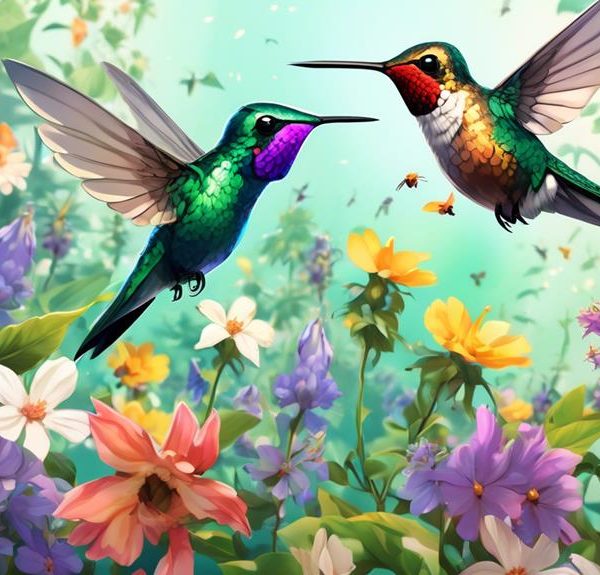Glimpse into the intriguing world of birds and mason bees, a surprising tale of survival and coexistence in our complex ecosystems.
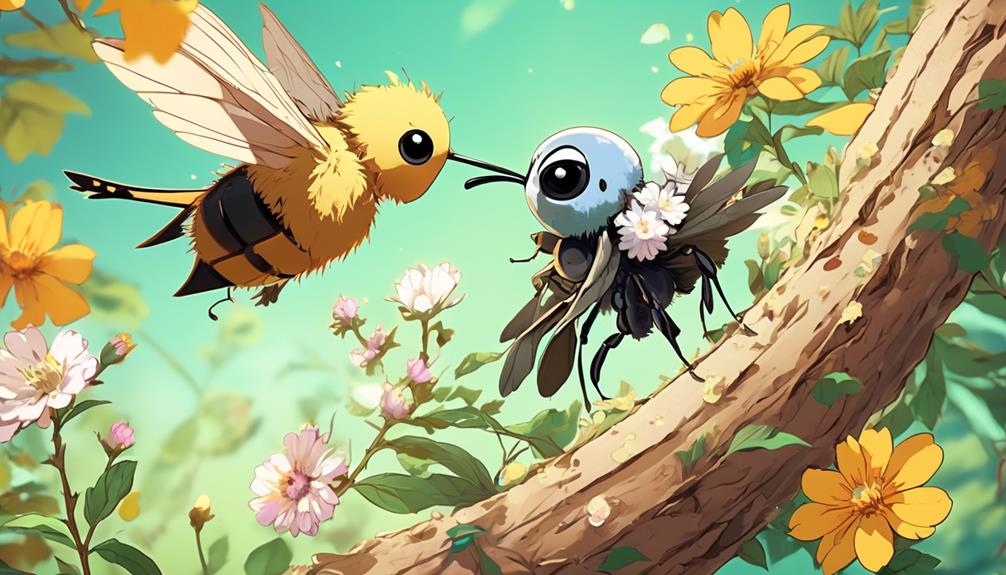
Do Birds Eat Mason Bees?
Peeling back the curtain on the secret lives of birds and mason bees can reveal a complex dance of survival. You might wonder, do these feathered creatures see mason bees as a mere snack or do they respect their buzzing counterparts?
It's a question that has many layers, encompassing the dietary habits of birds, the defensive strategies of mason bees, and the broader implications for our ecosystems.
Let's take this journey together to uncover the truth, and perhaps, in the process, unearth some surprises about the interconnectedness of our natural world.
Key Takeaways
- Mason bees are preyed upon by birds opportunistically.
- Mason bees have adapted defensive strategies to protect themselves from bird predation.
- Bird predation can lead to a decline in mason bee populations, disrupting pollination and affecting biodiversity.
- Protecting mason bees from predators is crucial for their population and ecosystem health.
Understanding Mason Bees' Role in Ecosystem
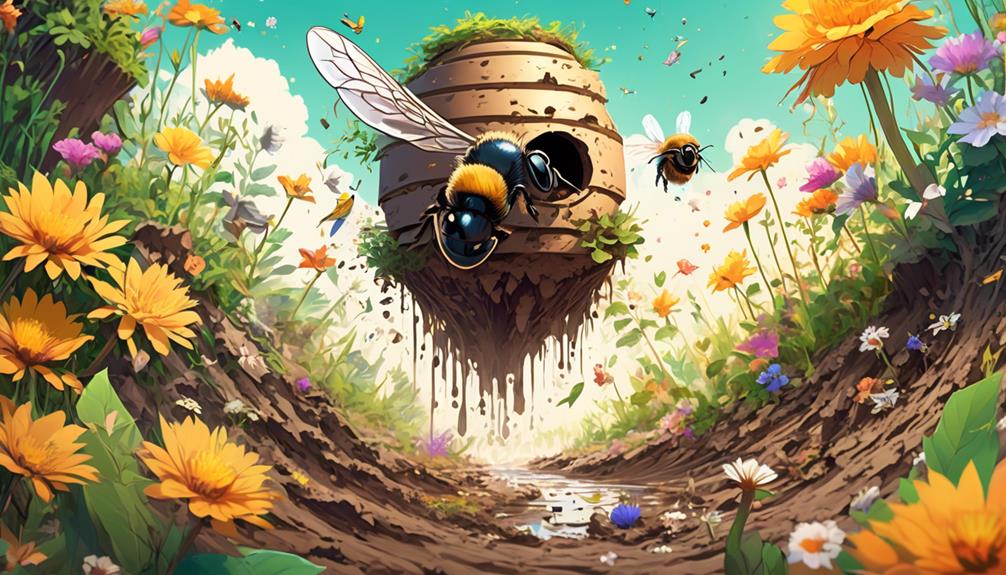
To fully grasp the importance of mason bees in our ecosystem, you've got to dive into their unique behaviors and roles they play in pollination. Unlike honeybees, mason bees are solitary creatures. They don't produce honey or beeswax, nor do they live in hives. Instead, they nest in cracks and crevices, laying their eggs in small, isolated spaces.
These bees are known as mason bees because of their propensity to use mud or other malleable material to build their nests. You'll find their homes in holes in wood, hollow stems, or even artificial nesting sites provided by humans.
Now, why are these bees crucial to our ecosystem? It's their superior pollinating abilities. They're more effective pollinators than honeybees because they carry pollen on their abdomen, which brushes off easily on flowers. This, coupled with their tendency to forage in cooler and cloudier conditions, makes them crucial for early spring pollination.
Bird Dietary Habits Explored
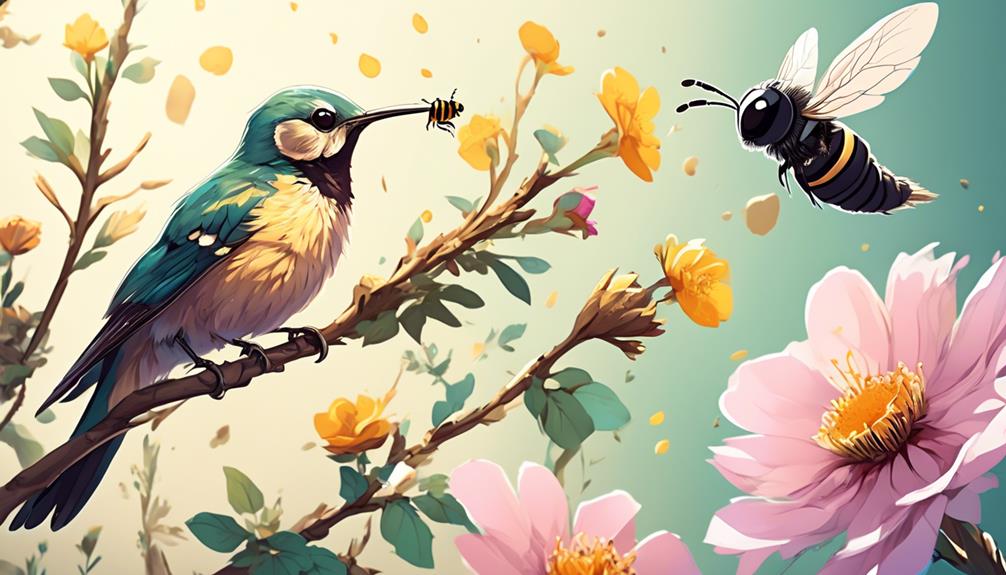
Delving into the dietary habits of birds, it's crucial to understand that their diet varies significantly based on their species, habitat, and the availability of food sources. For instance, some birds are granivores, feeding mainly on seeds and grains, while others are insectivores, consuming primarily insects.
To give you a clearer picture, let's consider this table:
Bird Species | Dietary Category | Common Food Items |
|---|---|---|
Sparrow | Granivore | Seeds, berries |
American Robin | Omnivore | Insects, fruits |
Red-tailed Hawk | Carnivore | Mammals, birds |
Hummingbird | Nectarivore | Nectar, small insects |
This table showcases the diversity in bird diets. Sparrows, being granivores, rely mostly on plant-based foods like seeds or berries. American Robins, as omnivores, have a balanced diet of insects and fruits. Red-tailed Hawks, being carnivores, feed on other animals, including mammals and smaller birds. Lastly, the diet of Hummingbirds consists largely of nectar, supplemented with small insects.
It's important to note that seasonal changes can also impact a bird's diet. For example, during colder months, some birds may switch to more readily available food sources. Understanding these dietary habits can help in determining their interactions with other creatures in the ecosystem, such as mason bees.
Birds and Mason Bees: A Complex Relationship
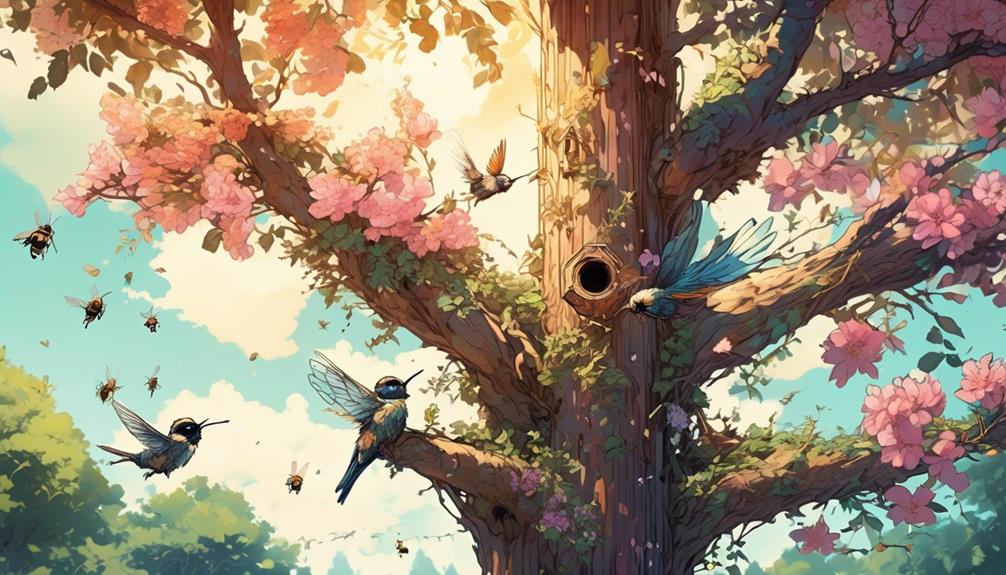
Having explored the diverse dietary habits of birds, let's now examine their complex relationship with mason bees and investigate whether these insects form part of their diet.
Yes, birds do eat mason bees. However, it isn't a simple predator-prey relationship.
Birds, especially species like sparrows, finches, and chickadees, are known to consume mason bees opportunistically. That means they don't specifically hunt them, but won't pass up a chance to snack if one presents itself. They're more likely to be consumed when other food sources are scarce.
Importantly, mason bees have developed adaptive responses to this predation. They've evolved to build their nests in narrow crevices, making it harder for birds to reach them. The bees also have a distinct, rapid flight pattern, which makes them difficult to catch in mid-air.
However, birds aren't the primary threat to mason bees; in fact, they play a crucial role in the ecosystem by controlling the population of these insects. Too many mason bees can lead to overpollination, which can harm plants. Birds help maintain a balance, playing a role in the intricate web of biodiversity.
This relationship between birds and mason bees is indeed complex and multifaceted.
Impact of Predation on Bee Populations
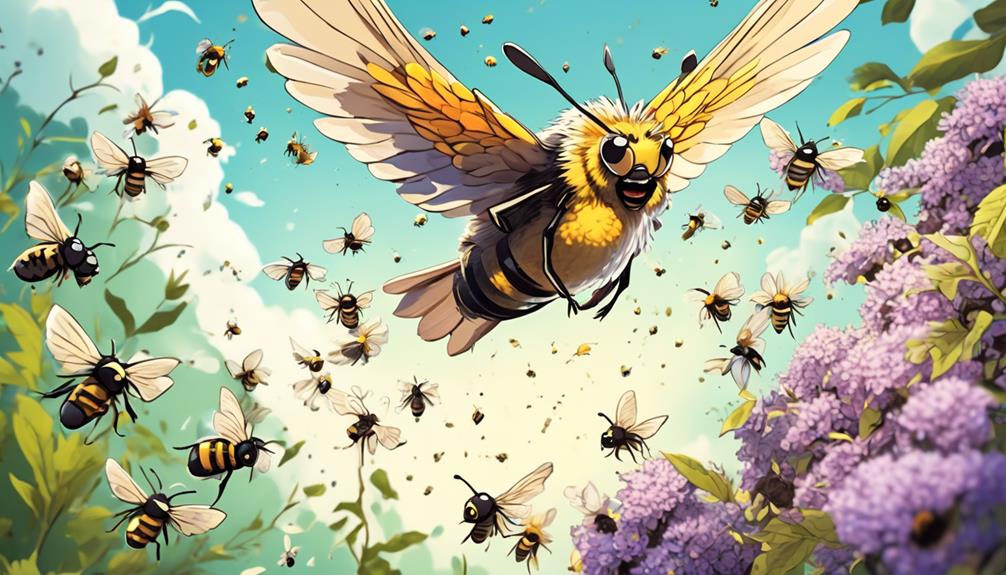
Predation significantly impacts mason bee populations, with birds serving as one of the many factors influencing their survival and abundance. You see, even though mason bees are known for their robustness and resilience, they're not completely immune to the dangers of predation. This natural predator-prey interaction has significant implications for the sustainability and health of mason bee populations.
Here's a succinct summary of the impacts of bird predation on mason bees:
Impact | Description |
|---|---|
Population Decline | Birds eating mason bees can lead to population reduction, threatening the species' survival. |
Disrupted Pollination | Less bees means disrupted pollination, affecting plant reproduction and biodiversity. |
Ecological Imbalance | Predation can cause an imbalance in the ecosystem, affecting other species. |
Genomic Changes | Predatory pressure can lead to genomic changes, influencing bee behavior and adaptation. |
Understanding these impacts isn't just an academic exercise. It's crucial in devising strategies for bee conservation. Remember, mason bees play an instrumental role in our ecosystem, particularly in pollination. Their decline could have far-reaching consequences, not just for our environment, but for our food security as well. So, let's not underestimate the impact of predation on these industrious insects.
Protecting Mason Bees From Predators
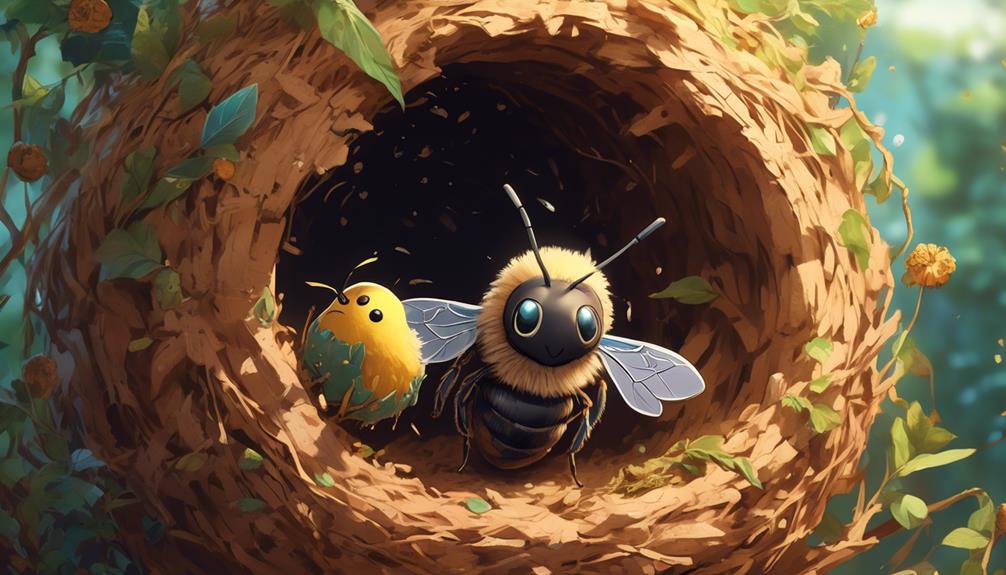
Shielding mason bees from predators like birds is a critical step in safeguarding not only their populations, but also the overall health and balance of our ecosystems. These diligent pollinators play a vital role in maintaining biodiversity and supporting plant growth. As you endeavor to protect these bees, it's important to understand the threats they face and implement effective strategies to mitigate these risks.
Predation from birds, spiders, and certain insects can significantly impact mason bee populations. Protective measures can be as simple as providing adequate cover and hiding spaces for the bees. You might consider creating a bee house by drilling holes into untreated blocks of wood, or using hollow bamboo canes. These provide safe nesting spots away from predators' prying eyes.
Another tactic involves placing the bee house in a location that's easily defensible. It should be out of reach of ground-dwelling predators and not directly exposed to bird flight paths. You'll also want to ensure the area is free from pesticides, which can indirectly harm the bees by contaminating their food sources.
Conclusion
So, do birds eat mason bees? Yes, some do. Birds' dietary habits are diverse and complex, with certain species preying on these bees. This predation can impact mason bee populations, affecting our ecosystems.
However, you can play a role in protecting these helpful insects. By understanding and respecting the intricate web of life, you can contribute to a balanced ecosystem where birds and bees coexist.
Preserve their habitats and promote biodiversity, it's in your hands.

